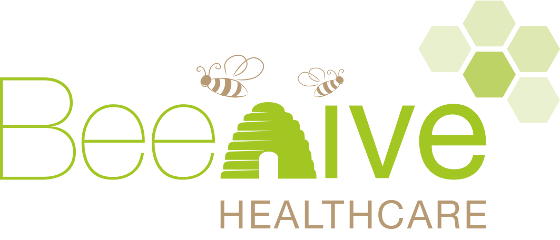Menopause is a natural phase of life, however, the symptoms associated with menopause can often be challenging to manage and vary greatly from person to person. In the UK, women face a variety of hurdles when seeking help for menopausal symptoms, including lack of awareness, societal stigmas, and limited access to effective treatments. In this blog, we will explore ten unusual ways to alleviate menopausal symptoms and shed light on the challenges faced by women seeking support in the UK.
Acupuncture
Acupuncture, a traditional Chinese medicine practice, has shown promising results in reducing hot flushes, night sweats, and mood swings associated with menopause. By stimulating specific points on the body, acupuncture can help restore hormonal balance and alleviate symptoms. At Beehive we have Mingxing Lin who offers Traditional Chinese Acupuncture.
Herbal Remedies
Herbal remedies such as black cohosh, red clover, and evening primrose oil have been used for centuries to alleviate menopausal symptoms. Whilst scientific evidence is limited, some women find relief from hot flushes, vaginal dryness, and mood swings through these natural alternatives.
Yoga and Meditation
Engaging in yoga and meditation can promote physical and mental well-being during menopause. These practices can help reduce stress, improve sleep quality, and enhance overall relaxation, thereby alleviating symptoms like anxiety, irritability, and sleep disturbances. Lee Gosnay runs Movement and Enerchi workshops monthly at Beehive which utilise teachings from these models to encourage mindful movement.
Aromatherapy
Essential oils, such as lavender and chamomile, have been used for their calming and mood-enhancing properties. Incorporating aromatherapy into your daily routine through diffusers, baths, or massage can provide relief from stress, improve sleep, and uplift your mood. At Beehive we have 2 options for this. Manuela Surgeon is a psychotherapist trained in aromapressure and Sandra Leyland Williams utilises aromatherapy during massage treatments.
Exercise
Regular physical exercise not only improves cardiovascular health but also helps manage menopausal symptoms. Engaging in activities like walking, swimming, or cycling can enhance mood, reduce hot flushes, and maintain a healthy body weight. Cheshire Change Hub can support you on this journey through their links with Brio Leisure. Or Lee Gosnay’s sessions are also designed for all levels of fitness.
Mindfulness
Practising mindfulness involves focusing on the present moment, fostering self-acceptance, and cultivating gratitude. By incorporating mindfulness techniques into daily life, women can better cope with the emotional challenges often experienced during menopause.
Hypnotherapy
Hypnotherapy is an complementary therapy that aims to create a deep state of relaxation and heightened focus. It has shown promise in reducing hot flushes, insomnia, and anxiety related to menopause, allowing women to regain control over their bodies and minds. Tranceform Hypnosis can offer support with hypnosis for the impact menopause can have on mental health too.
Diet and Nutrition
Adopting a well-balanced diet rich in whole grains, fruits, vegetables, and lean proteins can help manage menopausal symptoms. Some foods, such as soya, flaxseed, and oily fish, contain natural compounds that may alleviate symptoms like hot flushes and joint pain.
Supportive Undergarments
Wearing supportive undergarments, such as moisture-wicking bras or cooling underwear, can provide comfort during hot flushes and night sweats. These specially designed garments help regulate body temperature and promote better sleep.
Seeking Professional Help:
Although complementary approaches can be helpful, seeking professional advice is crucial. Many women in the UK face challenges when seeking help for menopausal symptoms due to limited awareness among healthcare professionals and the lack of available treatment options. It is important to consult with a healthcare provider who specialises in menopause to explore suitable hormone replacement therapies, lifestyle modifications, or other medical interventions.
Menopausal symptoms can significantly impact a woman’s quality of life, and finding effective ways to manage them is crucial. While the challenges of seeking help for menopause persist in the UK, these ten unusual approaches offer alternative avenues for alleviating symptoms. By combining these methods with professional guidance, women can navigate the menopausal journey with increased comfort
About Ash Alam

Ash graduated from the Medical College of St Bartholomew’s Hospital in London in 1994 where he was awarded the Matthews Duncan prize in Obstetrics & Gynaecology.
He trained in obstetrics and gynaecology mainly in North and East London and he has also worked in New Zealand.
Mr Alam has been a Consultant Obstetrician & Gynaecologist since 2006, and has a particular interest in the modern treatment and management options for heavy, irregular and painful periods and fibroids.
He is trained in gynaecological ultrasound.
Mr Alam runs a specific vaginal pain/painful sex (dysparunia) clinic jointly with a psychosexual therapist in order to offer both physical and psychological care.
Menopause care, especially painful sex after the menopause, is also an area of expertise and Mr Alam has lectured on this topic.
Ash will be holding consultations only at Beehive Healthcare so any further interventions may be held at his other clinics. To see what services he offers consultations on here please view Women’s Health & Wellbeing. He also offers virtual zoom appointments.








